England v Sri Lanka: Hosts answer questions, but problems remain - Agnew
- Published
In early season conditions and playing at the standard they have been, England were always likely to overwhelm Sri Lanka.
Indeed, if Alastair Cook's men had recorded anything less than their 2-0 series win, then some questions might have been asked.
As it is, that final scoreline was the right outcome for the cricket that has been played.
However, great credit must be given to Sri Lanka for the way they have improved as the three Tests progressed.
After a horrific start in difficult conditions at Headingley they showed that, with the right attitude and the willingness to learn, you can get to the standard required.
The best example of this was the way openers Kaushal Silva and Dimuth Karunaratne played on the fourth evening of the final Test at Lord's. With James Anderson and Stuart Broad roaring in, they knuckled down to get through to the close. It was excellent batting.
In the end, the rain spoiled what could have been an intriguing final day. I'm not sure Sri Lanka would have chased their target of 362, but they might have shown some spirit in pursuit of a consolation win.
Overall, it was a pretty good series for England. Some questions were answered, while others remain.
Curtains for Compton?
I would be very surprised if Nick Compton, who averaged 12.75, is picked again.
He's worked very hard and done a lot of the right things in terms of preparation, but you have to get the runs. It just didn't happen for him.
The selection process has to have an integrity and you can't keep going back to someone if they are not performing. Maybe a batsman with a career average of 50 would be given more time, but Compton doesn't have that sort of credit in the bank.
The one slight doubt is that we can't say what might happen between now and the first Test against Pakistan. Compton might get a stack of runs for Middlesex and Scott Borthwick, the man who seems to have earned an opportunity, might struggle for Durham.
Another man who has not taken his chance in the England top order is James Vince, but he will probably be given the Pakistan series to prove he is good enough.
Still, that might not be at number five, with the possibility of him moving to three depending on what happens to Compton.
Taking all of this into account, it is quite dangerous to try to select the team for the first Test against Pakistan at Lord's on 14 July.
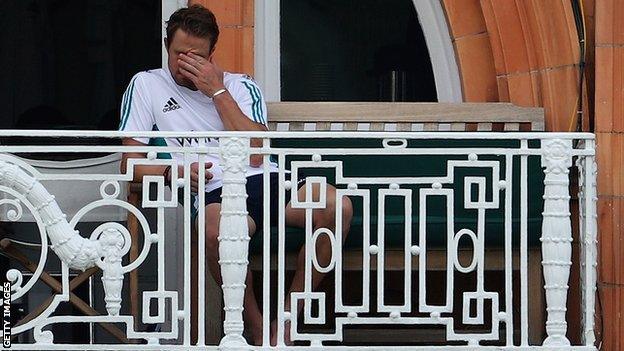
Nick Compton managed only 51 runs in five innings
Hail Hales
While others in England's top order struggled, opener Alex Hales had a brilliant series.
Before the first Test I thought he was lucky to have kept his place after an indifferent time in South Africa, but he returned with 292 runs at an average of 58.
I previously read some nonsense about him coming into the side and banging the ball about, but that's not what Test cricket is and that is not how you play it.
Hales, a quick learner, realised that and the way he knuckled down is fantastic. In Test cricket you have time, once you get yourself in, to expand an innings. The attitude he showed is exactly what you need.
Pakistan, who have a more dangerous attack than Sri Lanka, will test him more around off stump, but his confidence will be higher and he should be better equipped to deal with that.
Bairstow's keeping a concern
Jonny Bairstow, England's man of the series, was quite incredible with the bat, but the mistakes he made with the wicketkeeping gloves are a concern.
This winter, with two Tests in Bangladesh and five in India, will be a supreme challenge for a wicketkeeper, spending long hours standing up to the stumps for the spin bowlers.
I'm not being critical of Bairstow, because he will know he is missing too many chances. He is a competitive and determined man who will not rest on his laurels - he must maintain the work he is doing with England wicketkeeping coach Bruce French.
Is he going to be England's wicketkeeper in two years' time? I can't say for certain. With how much batting England have in their lower order, they might even be able to pick a specialist keeper.
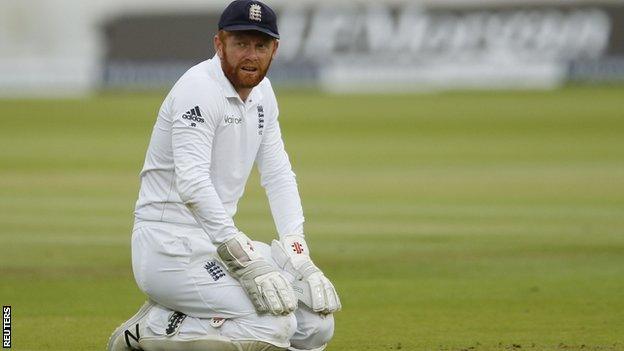
Jonny Bairstow finished the series with 19 victims behind the stumps
Woakes v Finn
When Ben Stokes returns to fitness, England will have a tricky decision to make between Chris Woakes and Steven Finn.
Finn is a natural wicket-taker, even when he's not bowling well, but he can bowl better than he has in this series.
At his best he gets the ball to an awkward height at good pace, quicker than he is currently bowling and that could yet click in the cricket he plays between now and the Pakistan series.
The pressure on his place comes from the fact Woakes has had a really good couple of games since coming in to the side as a result of Stokes' knee injury. In two Tests he's taken eight wickets and averaged more than 50 with the bat.
At the moment, if they are both fit, I would stick with Finn, but Woakes is a man who provides England with a lot of options.
Down with relegation
The one-sided nature of the first Test in particular led to lots of talk about a two-tiered structure in Test cricket, one International Cricket Council chief executive Dave Richardson went on to endorse.
I'm firmly opposed to that because it could be the death knell of Test cricket in some countries. Disenfranchised players could go off to play in the various Twenty20 leagues and their national sides would never recover.
If you speak to the players, they will all say that you need to play against the best to improve. The difference between Sri Lanka at the end of this series when compared to the beginning is proof of that.
That is not to say Test cricket does not need to be scrutinised, because a root-and-branch review is required.
Structure it correctly so the players can do it justice. Give them enough time to prepare, don't shunt games to outposts, stop making some series two matches long and others five.
If we are serious about Test cricket, then treat it seriously.
Jonathan Agnew was talking to BBC Sport's Stephan Shemilt
- Published13 June 2016
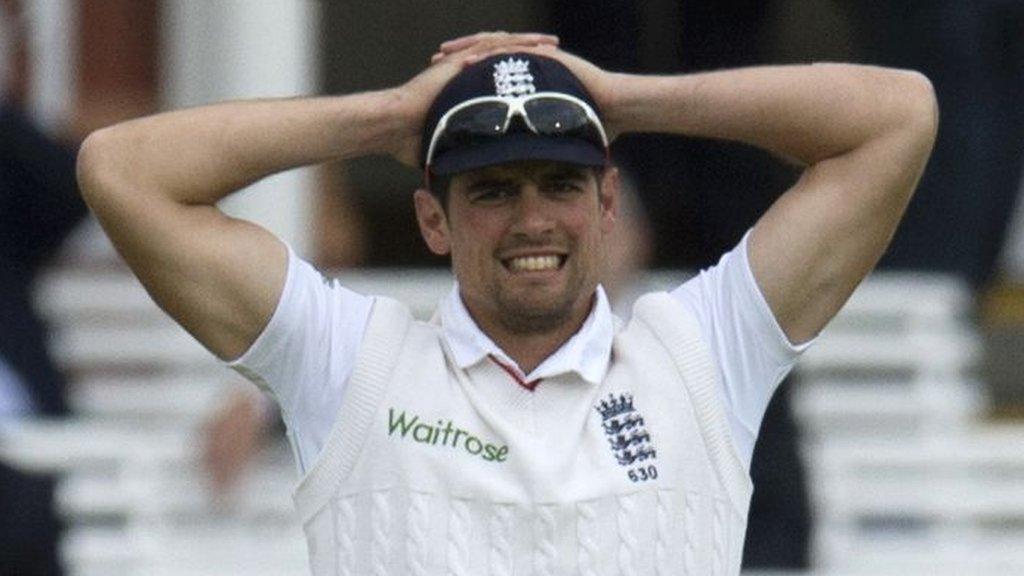
- Published13 June 2016

- Published13 June 2016
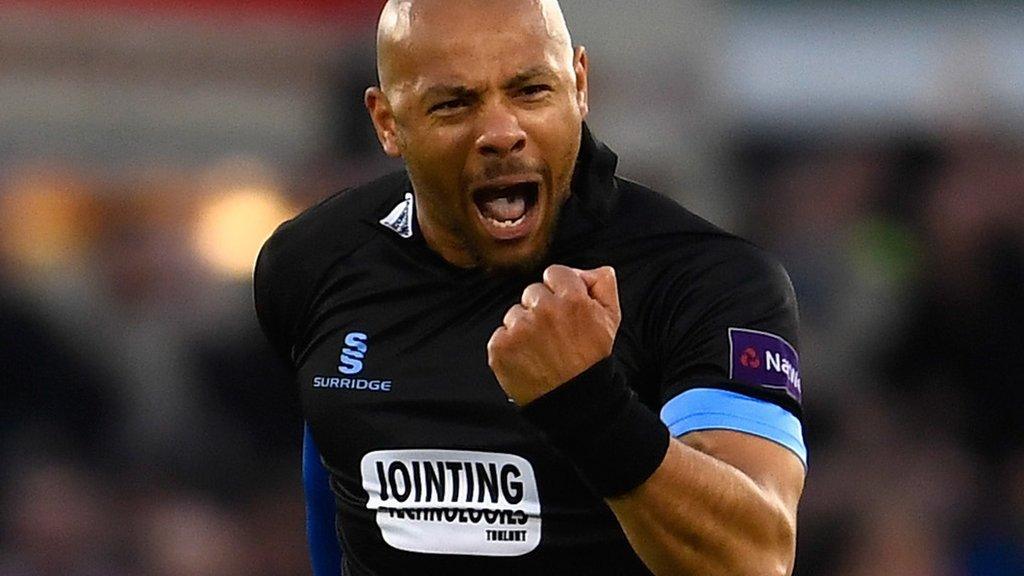
- Published6 June 2016
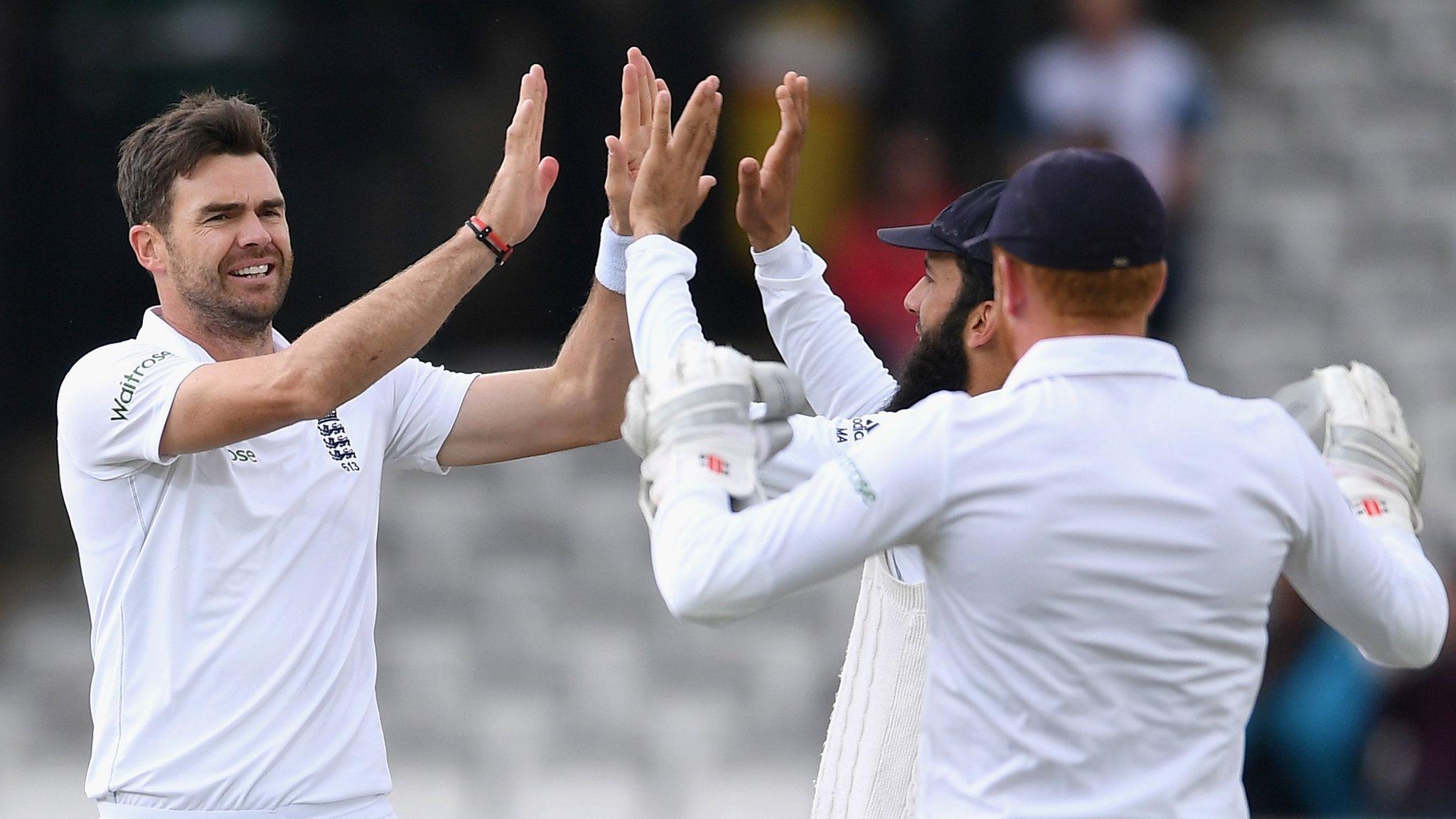
- Published10 March 2019

- Published15 May 2018
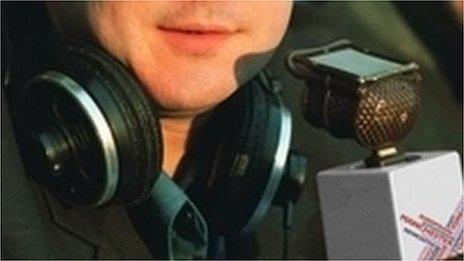
- Published18 October 2019

